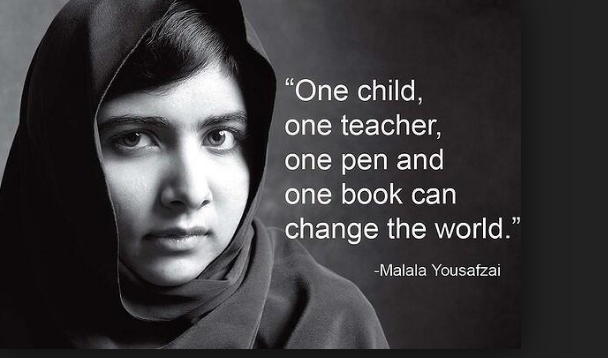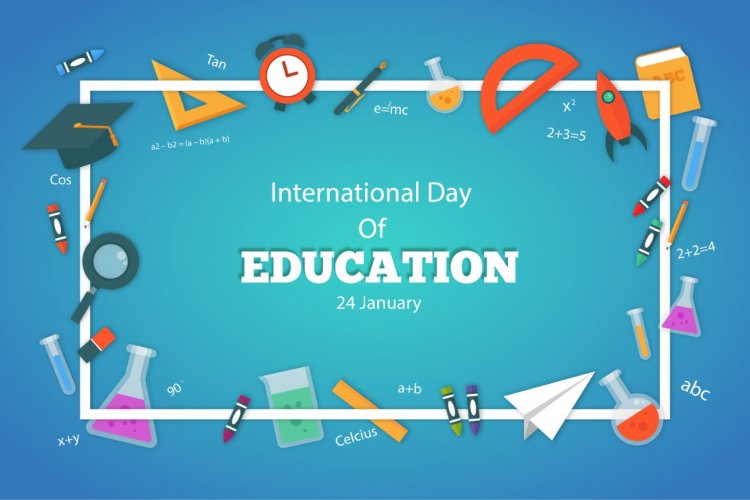Theme Of 4th International Education Day:
Each year on January 24, the United Nations celebrates the significance of education in promoting peace and stability. On January 24, 2018, the U.N. General Assembly declared International Education Day.
The first International Day of Education is being observed today worldwide under the theme “Changing Course, Transforming Education.”
This year’s International Day of Education 2022 will serve as a showcase for the essential changes that must be nourished in order to achieve everyone’s fundamental right to education and construct a better sustainable, inclusive, and harmonious tomorrow.

Read Now- National Girl Child Day: Let’s Fly With Her Dream
It will spark discussion about how to improve education as just general welfare, how-to guide the digital transformation, support teachers, protect the environment, and unleash the potential of every individual for contributing to communal well-being and the communal habitat.
International Day of Education Background
The U.N. General Assembly officially issued a law on December 3, 2018, declaring January 24 as International Day of Education, in honor of the significance of education in promoting peace and stability.
Nigeria and 58 other Member States co-authored Resolution 73/25, “International Day of Education,” which highlighted the steadfast political commitment to support transformational efforts for inclusive, equitable, and high-quality education for everyone.

While doing so, the global community reaffirmed that education is critical to developing sustainable and inclusive communities and to the attainment of the other SDGs. The agreement is named across all stakeholders, which include the Member States, U.N.
organizations, civil society, non-governmental organizations, academic institutions, the private sector, individuals, and many other stakeholders, to perceive the International Day of Education in order to strengthen international cooperation in support of efforts to achieve Sustainable Development Goal 4.
In partnership with the vital education players, UNESCO, as the specialized United Nations organization for education, promotes the yearly commemoration of the Day.
Objective Of International Day of Education
Transforming the future, as outlined in UNESCO’s global Futures of Education report.
Necessitates an immediate realignment of our relationships with each other with nature, and with technology, which permeates our lives and offers unprecedented opportunities while also raising serious concerns about equity, inclusion, and political representation.
Education is a tool that may promote growth and advancement, but access to it is incredibly uneven. The Covid-19 outbreak exacerbated this difference.

Due to the shutdown of schools, colleges, and other educational institutions during the pandemic, education suffered a significant gap, necessitating a move to an online form.
-
Education is a human right
Article 26 of the Universal Declaration of Human Rights guarantees the right to education, and free and obligatory primary education is demanded in the declaration.
The 1989 Convention on the Child’s Rights goes much farther, stating that nations must make higher education available to all people.
-
Education is key to sustainable development
When the international community approved the 2030 Agenda for Sustainable Development in September 2015, it acknowledged that education is critical to achieving all 17 of the agenda’s goals.
By 2030, Sustainable Development Goal 4 intends to “provide inclusive and equitable quality education for all” and “encourage lifelong learning opportunities for all.”
-
Challenges to achieving universal education
Education provides a stepping stone out of poverty and even a direction to a brighter future for children. However, approximately 258 million children and adolescents around the world are unable to attend or complete school; 617 million children.

Adolescents are unable to read or perform basic math; less than 40% of girls in Sub-Saharan Africa complete lower secondary school, and approximately four million children and youth refugees are unable to attend school.
It is outrageous that their right to education is being infringed.
Countries will not be able to achieve gender equality and break the cycle of poverty that is trapping millions of children, youth, and adults if they do not provide inclusive and equitable quality education and life opportunities for everyone.
